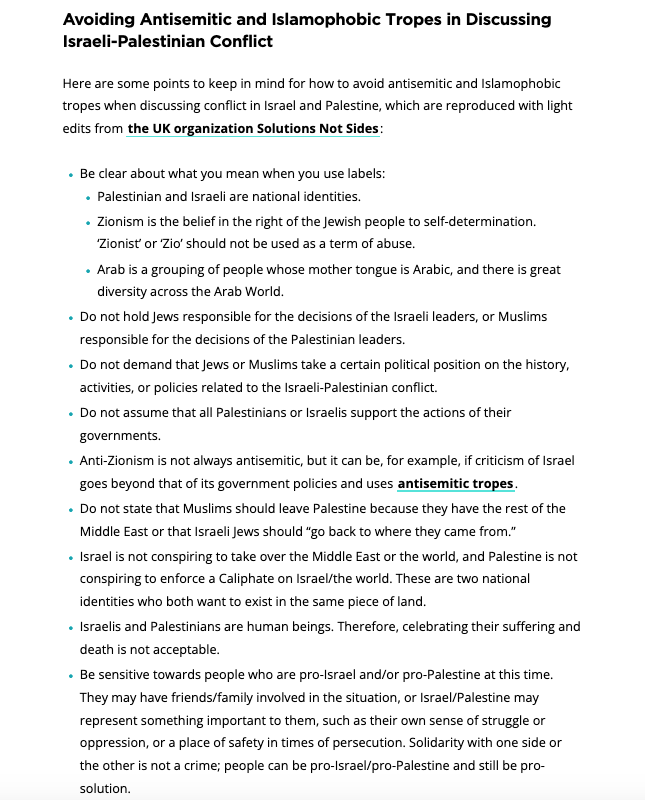Friday Finds for Writers

Most Fridays the Practicing Writing blog shares writing and publishing resources, news, and reflections to peruse over the weekend. But it’s been an excruciating week for so many of us. And frankly, I’ve paid next-to-no attention to garden-variety news from the writing and publishing spheres.
On Wednesday, however, I received an email from Facing History and Ourselves, a Boston-based global nonprofit organization that I’ve admired for many years. The email introduced a “mini-lesson” titled “Processing Attacks in Israel and the Outbreak of War in the Region.”
The resource isn’t perfect. (What resource is?) But one of its segments impressed me as something that, though intended for educators and students, could be clarifying for writers as well, in our work and in the rest of our lives. It’s a section titled “Avoiding Antisemitic and Islamophobic Tropes in Discussing Israeli-Palestinian Conflict.”

- “Don’t Be a Jerk to Your Online Humor Editor.” (It’s probably wise not to be a jerk to any editor—or, for that matter, to anyone.) But this piece is grounded in the experiences of McSweeney’s editor Chris Monks. (HT @LisaBorders)
- From the New York Society Library’s Sara Holliday: “Last Memorial Day, I took a glance at books about some of the memorialized whose stories have not always been told in mainstream histories. As Veterans’ Day approaches, it occurs to me that I am – quite wrongly – mired in mid-twentieth-century history when I think about living veterans – as if surely they were all the boys on the beach at Normandy, not people my own age or younger. As a corrective, I paged through a few of our many narratives by veterans of the wars in Iraq (2003 and since) and Afghanistan (2001 and since). However we feel about the wars and the policies, understanding their veterans’ experiences is surely appropriate to the day.”
- Remember George Orwell’s classic “Why I Write” essay? Then you’ll likely appreciate Keith Wain’s update for the digital era.
- “Editors/writers/readers – what are the most commonly misused words that you see in creative writing? I’m doing an exercise for my Faber Academy class & want to make sure I’ve covered the regular offenders! (Top of my list: discreet/discrete and disinterested/uninterested.)” Good thread launched by @Alison_Edits.
- And there’s lots of good stuff in this week’s Jewish-lit links on the My Machberet blog.
Have a good weekend.
I’ve noticed how commonly “reticent” is misused when what is meant is “reluctant.” It helps to remember that “reticent” comes from the Latin “taceo”/”tacere,” which means “I am silent”/”to be silent.”
If you’re on Twitter, you should add that to the thread!
Mantle / mantel.
“irregardless”
“your” for “you’re”